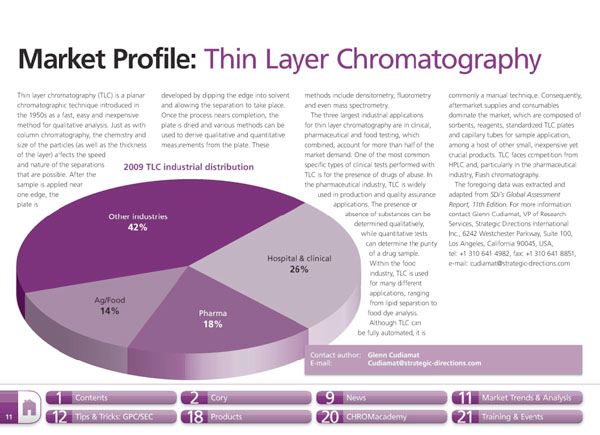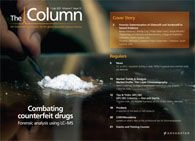Market Profile: Thin Layer Chromatography
Thin Layer Chromatography industrial distribution
Thin layer chromatography (TLC) is a planar chromatographic technique introduced in the 1950s as a fast, easy and inexpensive method for qualitative analysis. Just as with column chromatography, the chemistry and size of the particles (as well as the thickness of the layer) affects the speed and nature of the separations that are possible. After the sample is applied near one edge, the plate is developed by dipping the edge into solvent and allowing the separation to take place. Once the process nears completion, the plate is dried and various methods can be used to derive qualitative and quantitative measurements from the plate. These methods include densitometry, fluorometry and even mass spectrometry.
New Study Reviews Chromatography Methods for Flavonoid Analysis
April 21st 2025Flavonoids are widely used metabolites that carry out various functions in different industries, such as food and cosmetics. Detecting, separating, and quantifying them in fruit species can be a complicated process.
Analytical Challenges in Measuring Migration from Food Contact Materials
November 2nd 2015Food contact materials contain low molecular weight additives and processing aids which can migrate into foods leading to trace levels of contamination. Food safety is ensured through regulations, comprising compositional controls and migration limits, which present a significant analytical challenge to the food industry to ensure compliance and demonstrate due diligence. Of the various analytical approaches, LC-MS/MS has proved to be an essential tool in monitoring migration of target compounds into foods, and more sophisticated approaches such as LC-high resolution MS (Orbitrap) are being increasingly used for untargeted analysis to monitor non-intentionally added substances. This podcast will provide an overview to this area, illustrated with various applications showing current approaches being employed.
















